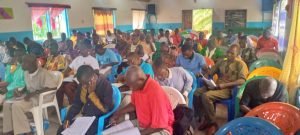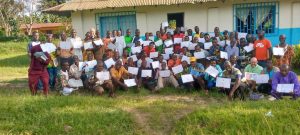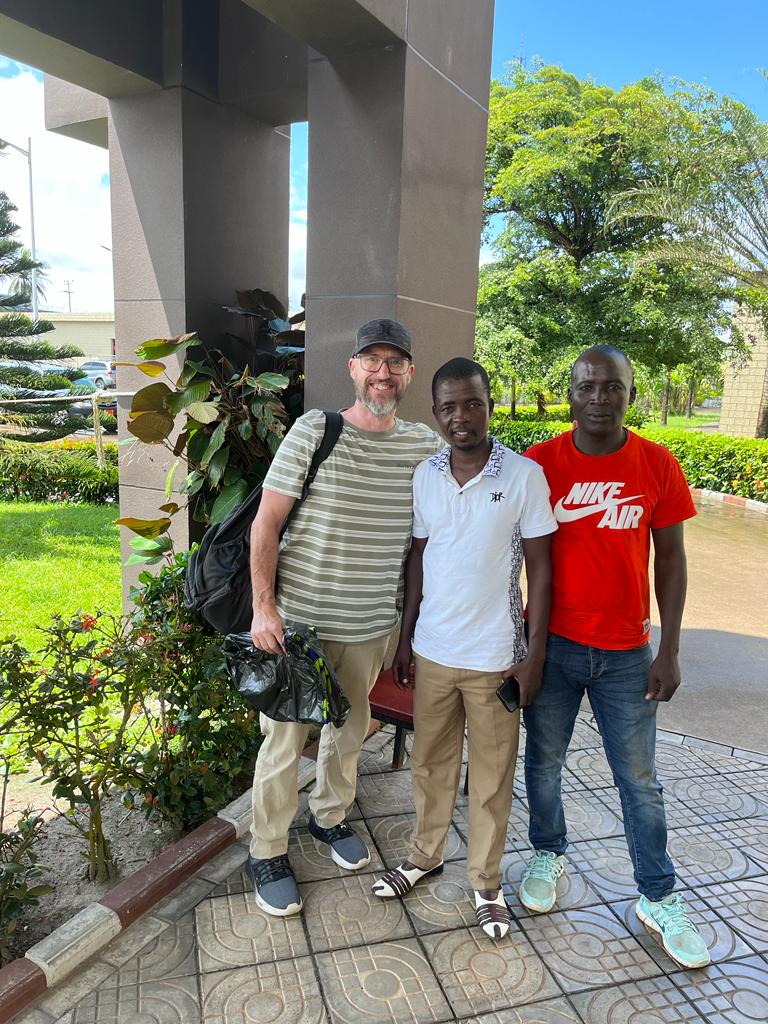Seventeenth century theologian Thomas Fuller coined the oft heard maxim, “It’s always darkest before the dawn.” In other words, the dark night of the soul will inevitably give way to the light of a new day. There is much talk in Liberia these days of a new day.
Tuesday, October 10 is election day for the next president in Liberia, and political campaign signs and announcements flood the roadsides and airwaves. One prominent presidential candidate’s campaign slogan particularly grabbed my attention– “Fix Liberia.” Like many countries in Africa, Liberia’s history is one of a promise betrayed.
In 1817, a group of American philanthropists and political activists purchased a tract of land along the West African coast to serve as a new home for the growing population of emancipated American slaves. They named this new land Liberia, and some 12,000 former slaves were relocated to begin life anew in this land of liberty. By 1847 Liberia had declared its independence and became a sovereign nation.
However, the promise of liberty has never been truly realized. From its inception, Liberia has been wracked with ethnic infighting. Much of this can be laid at the feet of the nineteenth-century American government who fomented such division with their practice of giving preferential treatment to the elites who were relocated to the new colony over the indigenous tribes who migrated there from the surrounding countries of Sierra-Leone, Guinea, and the Ivory Coast.
Ethic division continued to ebb and flow throughout the decades with American backed elites establishing dictatorial control and oppressing the more populous indigenous peoples. As unrest grew, an explosion was inevitable. The match was lit during the race riots of 1979 when President William Tolbert ordered the police to open fire on protesters killing hundreds.
Soon thereafter, high ranking members of the military were planning a coup. A few months later military leader Samuel Doe and an associate successfully plotted the assassination of President Tolbert. A weak transitional government ultimately gave way to a rigged election in which Doe won the presidency in 1985. Promising to address injustices and be a president for the people, Doe initially won goodwill when revising the constitution. However, behind-the-scenes Doe ruthlessly hunted down and exterminated his political rivals establishing himself as the dictator of Liberia.
By 1989, Liberians realized they had been sold a false bill of goods and a rebel group led by Charles Taylor began planning another coup. Taylor and his band of rebels assassinated President Doe in a grizzly scene captured live on camera by Taylor’s men and broadcast all over Liberia. The assassination became a flash point for two successive civil wars spanning fourteen years in which 250,000 Liberians would perish and half of the population would be displaced.
Taylor seized power in 1997 and promised to restore Liberia’s promise, but ultimately history repeated itself during his reign. Another rebel movement formed in 1999 seeking to oust Taylor, then another backed by neighboring Guinea. By 2003, Taylor only controlled one-third of Liberia and was driven to seek refuge in Nigeria bringing Liberia’s fourteen-year nightmare to a merciful end.
Nevertheless, the damage was done. The brutality and carnage carried out by all sides were legion including rape, torture, sexual enslavement, the conscription of child soldiers, the crippling of the economy, and the destruction of cultural treasures.
Ultimately, Taylor was brought before the Hague and convicted of numerous war crimes, but he never faced trial in Liberia. Instead, he was sentenced by the government of neighboring Sierra-Leone for meddling in that nation’s civil war.
Liberia’s history reminds us of an uncomfortable truth–the cure that is promised often ends up being worse than the disease. Of course, as followers of Jesus, we believe that the only true fix for any nation is the transforming power of the gospel. However, the gospel is embodied in people. If nations are going to be “fixed,” then it’s leaders must first be fixed.
This is why we at International Training and Equipping Ministries (ITEM) focus our training efforts on leaders. We are convinced that the best way to reach a nation is to first reach its leaders. When leaders experience transformation, then churches experience transformation, then communities experience transformation, and finally nations experience transformation. Therefore, the fix is not an overnight process, but a slow, steady plodding in which leaders can embrace their calling, pursue godliness, grow in their knowledge, and cultivate their God-given leadership skills.
As we wrapped up our training in Karnplay, I looked out over sixty-five of the Nimba region’s best and brightest leaders, a region particularly scarred by the civil wars, and rejoiced that indeed it is a new day in Liberia. God is preparing a new generation of leaders to bring transformation to this war-torn country so that it may prayerfully fulfill its promise of spiritual liberty. The fix is in, and ITEM is helping to play a role.


Well, today we say goodbye to Liberia as we head to Cameroon where we will be doing another training in Bamenda. A special thanks to all who were praying for our visa situation. The last member of our team received his visa approval last night. As always, your prayers are appreciated.
Until next time . . . so long from Liberia!
